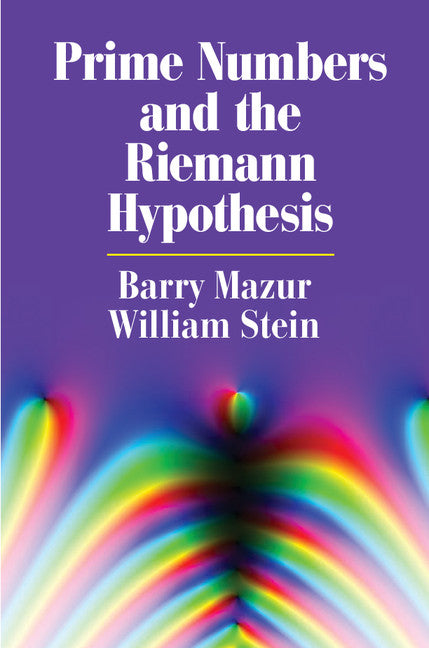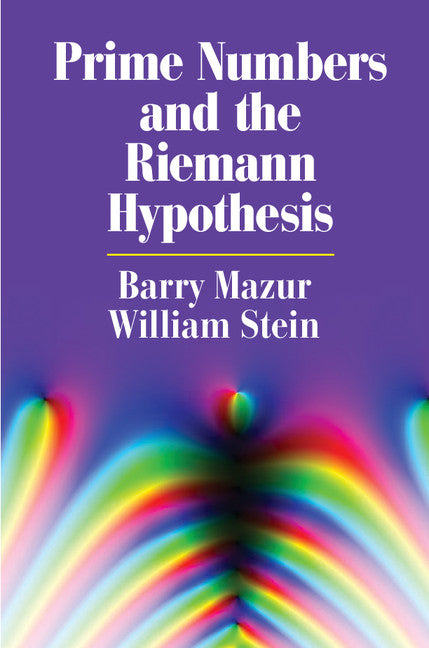Freshly Printed - allow 8 days lead
Couldn't load pickup availability
Prime Numbers and the Riemann Hypothesis
This book introduces prime numbers and explains the famous unsolved Riemann hypothesis.
Barry Mazur (Author), William Stein (Author)
9781107499430, Cambridge University Press
Paperback / softback, published 11 April 2016
150 pages, 110 b/w illus. 132 colour illus.
22.9 x 15.3 x 0.8 cm, 0.26 kg
'I really recommend this book if you want to get a feeling for the Riemann hypothesis without sinking into technicalities.' John Baez, The n-Category Café (http://golem.ph.utexas.edu/category)
Prime numbers are beautiful, mysterious, and beguiling mathematical objects. The mathematician Bernhard Riemann made a celebrated conjecture about primes in 1859, the so-called Riemann hypothesis, which remains one of the most important unsolved problems in mathematics. Through the deep insights of the authors, this book introduces primes and explains the Riemann hypothesis. Students with a minimal mathematical background and scholars alike will enjoy this comprehensive discussion of primes. The first part of the book will inspire the curiosity of a general reader with an accessible explanation of the key ideas. The exposition of these ideas is generously illuminated by computational graphics that exhibit the key concepts and phenomena in enticing detail. Readers with more mathematical experience will then go deeper into the structure of primes and see how the Riemann hypothesis relates to Fourier analysis using the vocabulary of spectra. Readers with a strong mathematical background will be able to connect these ideas to historical formulations of the Riemann hypothesis.
1. Thoughts about numbers
2. What are prime numbers?
3. 'Named' prime numbers
4. Sieves
5. Questions about primes
6. Further questions about primes
7. How many primes are there?
8. Prime numbers viewed from a distance
9. Pure and applied mathematics
10. A probabilistic 'first' guess
11. What is a 'good approximation'?
12. Square root error and random walks
13. What is Riemann's hypothesis?
14. The mystery moves to the error term
15. Césaro smoothing
16. A view of Li(X) - ?(X)
17. The prime number theorem
18. The staircase of primes
19. Tinkering with the staircase of primes
20. Computer music files and prime numbers
21. The word 'spectrum'
22. Spectra and trigonometric sums
23. The spectrum and the staircase of primes
24. To our readers of part I
25. Slopes and graphs that have no slopes
26. Distributions
27. Fourier transforms: second visit
28. Fourier transform of delta
29. Trigonometric series
30. A sneak preview
31. On losing no information
32. Going from the primes to the Riemann spectrum
33. How many ?i's are there?
34. Further questions about the Riemann spectrum
35. Going from the Riemann spectrum to the primes
36. Building ?(X) knowing the spectrum
37. As Riemann envisioned it
38. Companions to the zeta function.
Subject Areas: History of mathematics [PBX], Applied mathematics [PBW], Discrete mathematics [PBD], Mathematical foundations [PBC], Philosophy of mathematics [PBB], Mathematics [PB]


